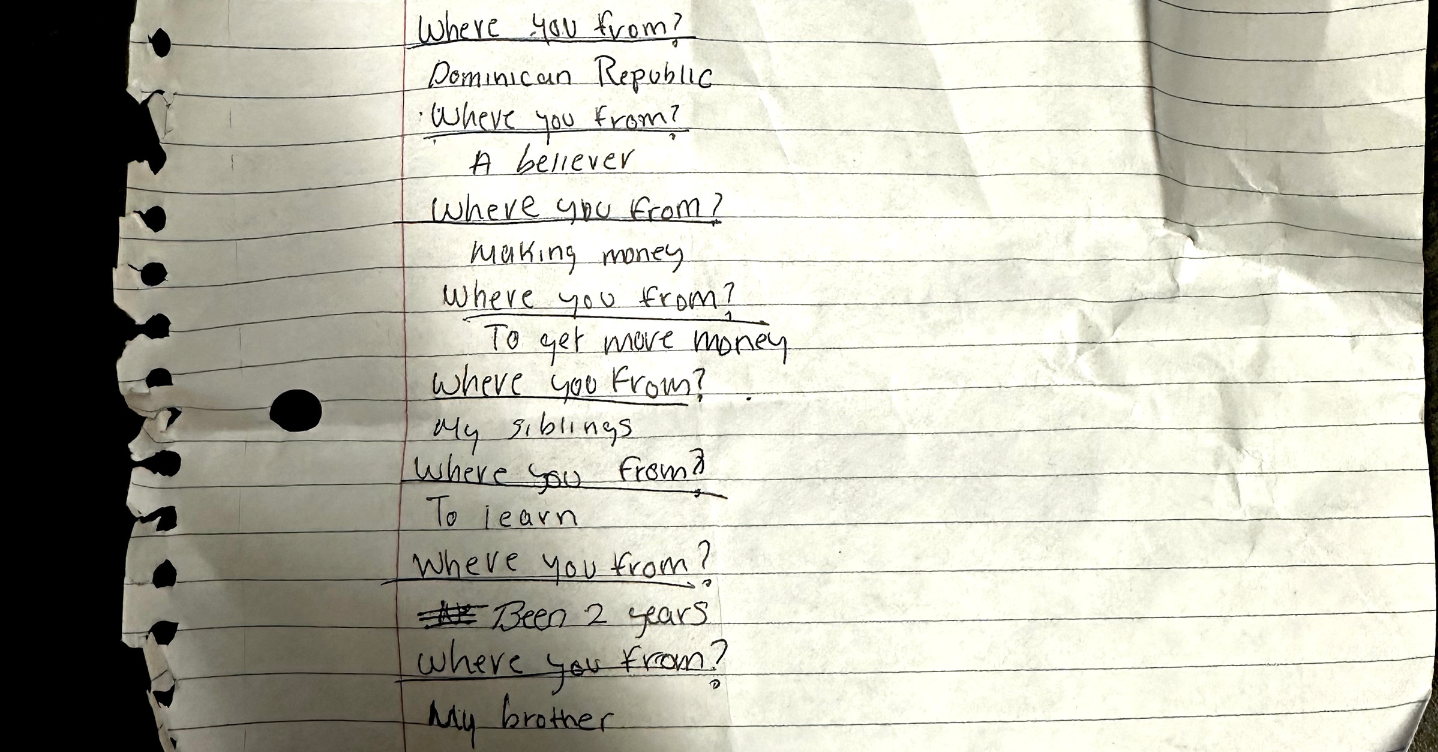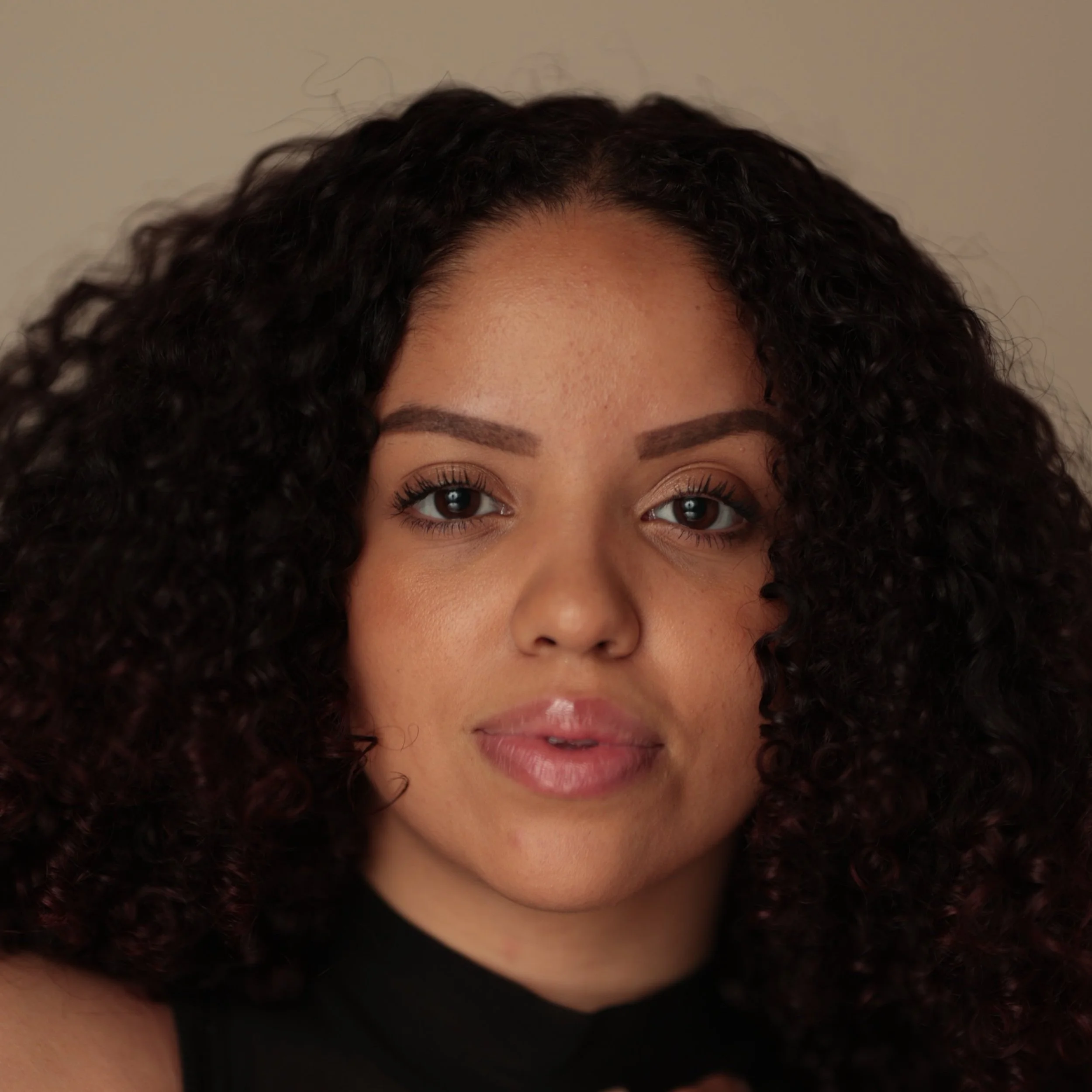Neighbors: Brooklyn Author to Bronx Poets
By Amanda Santiago with written works by BAE students.
Broadway for Arts Education: Creative Literacy
Classroom-Style
It is a Wednesday morning at our school, and students have just taken their regents a week prior. We are spending these next two weeks to focus on poetry with a highlight on Black and Latinx authors. I ask the question to my students: “Who likes poetry?” A few raise their hands, a handful are skeptical, and there is one student who entirely challenges the status quo: “I don’t like poetry.” Boy, do I love a conversation-starter in the classroom.
In our class sessions, we don’t criticize disliking something. Instead, we dive deeper and analyze these particular feelings and perspectives. “Why don’t you like poetry?” I ask. “Because it never makes any sense.” She says. Now, I have read Shakespearean poetry before, and I even have this same feeling afterwards.
Nonetheless, we begin with our creator starter, which is equivalent to a brainstorming question that sets the tone for our session. I proceed to write on the whiteboard: “If I were to ask: where are you from? How would you answer?” Students take 5-7 minutes to write.
As a facilitator, I find that answering the question first can create a trail of unorthodox responses in our classroom. You know, the type of answers that aren’t focused on being “right” or “correct” but instead just are. I say: “Where am I from? Well, I’m from Puerto Rico. I wasn’t born there, but I’m from there. That’s where my heart says I’m from.”
Another student says: “I’m from the Bronx. But I live in Brooklyn now.”
Another student says: “I’m from the Dominican Republic, but I’ve never been there.”
Another student says: “I’m from my mom’s stomach.”
We laugh and revel in these responses, because all of them are true.
Where are you from, though?
I introduce Elisabet Velasquez, a Puerto Rican author born and raised in Brooklyn, NY. Her recent book, When We Make It covers the universal experience of the displacement of Puerto Ricans in Bushwick, Brooklyn through a series of nostalgic, beautiful poems and writings. We turn to the poem, Neighbors, and popcorn-read it through together.
“Neighbors
Bushwick is full of hip-hop & salsa.
Cuchifritos & soul food.
Nail & hair salons.
Bootleg CD vendors & tamale ladies on the corner.
We are all the same in our difference.
No matter how we got to be neighbors here
We all know we lived somewhere else first.
I know this because on the occasion that
Our eyes lock for more than a moment
Our mouths ask each other the same question.
Where you from? Like nice to meet you.
Where you from? Like what block?
Where you from? Like what country?
Where you from? Like what God?
Where you from? Like where you been?
Where you from? Like where you going?
Where you from? Like who you missing?
Where you from? Like why you here?
Where you from? Like have you gone back?
Where you from? Like what did you leave behind?”
After deep discussion on the context of the writing, we turn to the writing of our own.
“Can you answer her questions?” I propose to the class. “Take a moment to answer our author. Where are you from? Go down the line of questions to respond to her.” Naturally, this question may appear general and simple to answer, but I refrain from telling my students that this might be an important question they may get asked their entire lives.
•••
“What do I write when she says “Nice to meet you?” A student asks.
“How would you respond if someone told you that?” I say.
“Likewise.” They write.
• • •
“What do I write for “Like what God?” Another students asks.
“What you believe in.” I say.
“My lord and savior, the almighty.” They write.
• • •
“What does she mean by “What did you leave behind?” Another student asks.
“Have you ever left something behind that you wish you could get back?” I respond.
“My family.” They write.
• • •
Students write for the remainder of the session, then submit their work to me. The bell rings, and they proceed to their next class unbeknownst of the transformative work they’ve just completed. Sure, they are aware of the physical and metaphysical places they come from, but what they may not realize is the incredible efforts it takes to shed light on the complexity of our backgrounds.
We are all from several places, and not just one place.
We are all displaced.
Yet, home is what we make it.
Amanda (Poise) Santiago (she/her) is a multidisciplinary artist born and raised in the calm and chaos of New York City. An actor, teaching artist, burlesque performer and entertainment reporter, she very well resonates as a jack of all trades. Santiago applies her esoteric views and wisdom into her teachings and multifaceted work, using themes of identity, spirituality and the collective consciousness. Currently, she is a member of Actors Equity Association (2023), an active staff member of the New York Burlesque Festival (2023), a student of Intimacy Directors and Coordinators (2022), and continues to pursue many more artistic ventures throughout the realms of education, nightlife, and the arts.




